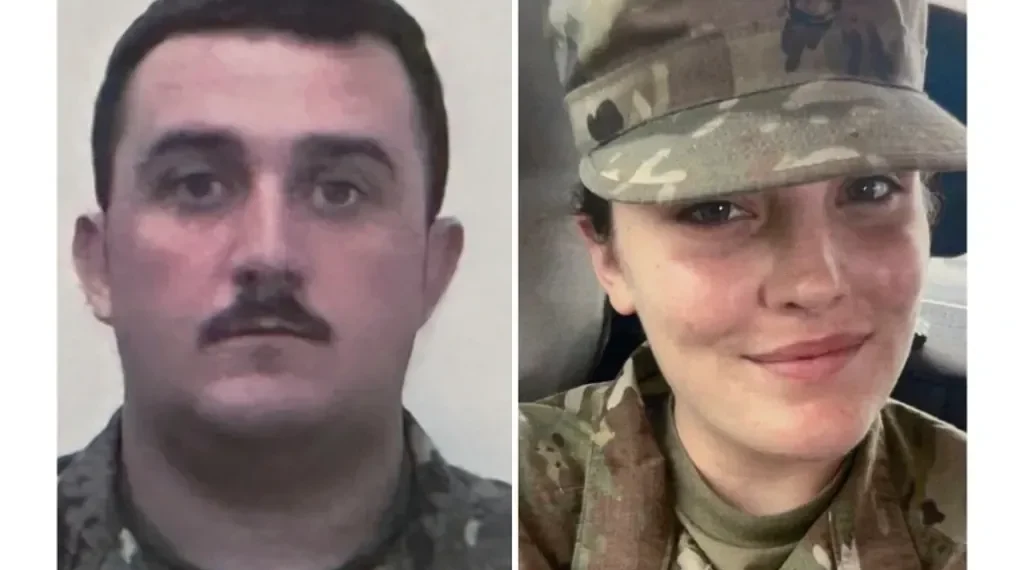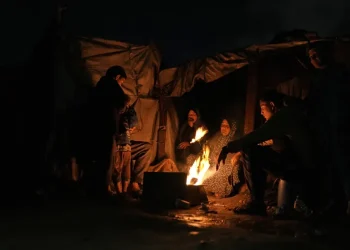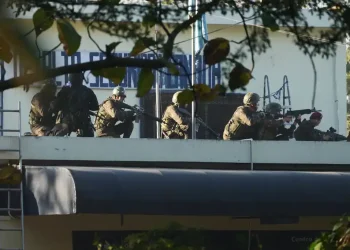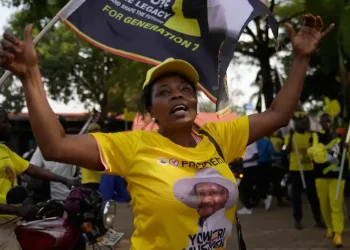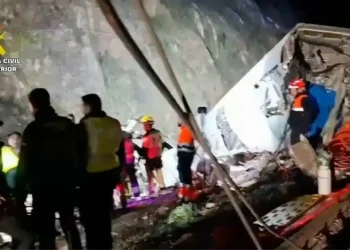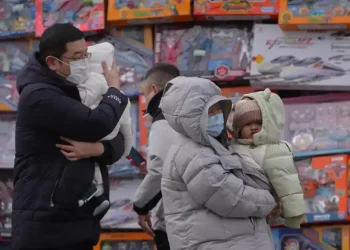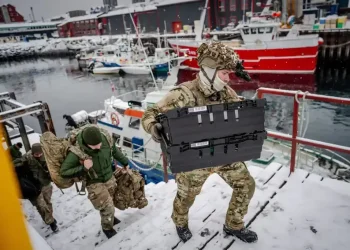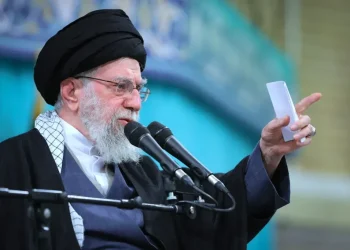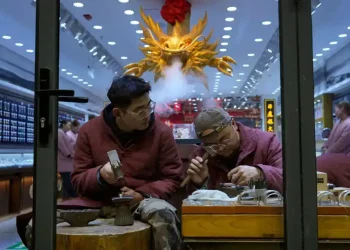Two U.S. National Guard members were shot near the White House this week, leaving one dead and another critically wounded, in an attack that has prompted fresh scrutiny of Afghan wartime resettlement programs and the political use of federal troops in Washington.
Specialist Sarah Beckstrom, 20, died late Thursday, hours after President Donald Trump announced during a Thanksgiving call with service members that she had succumbed to her injuries. Staff Sgt. Andrew Wolfe, 24, remains in critical condition and is “fighting for his life,” the president said.
The shooting — now a homicide investigation — has cast a spotlight on the suspect’s background as a former member of an elite CIA-backed Afghan unit, adding new complexities to an already fraught debate over U.S. responsibility toward Afghan partners after the 2021 withdrawal.
A deadly attack in the heart of Washington
The West Virginia National Guard shooting unfolded Wednesday afternoon, just blocks from the White House, in what authorities described as a sudden ambush. Investigators say Rahmanullah Lakanwal, 29, opened fire with a .357 Smith & Wesson revolver before being shot and apprehended by U.S. forces at the scene. His injuries were not believed to be life-threatening.
U.S. Attorney Jeanine Pirro, who is overseeing the case, said the attacker used an “ambush-style” approach, though she declined to comment on a possible motive. Initial charges included assault with intent to kill and unlawful firearm possession, but prosecutors signaled they would be upgraded following Beckstrom’s death.
The rare attack on uniformed Guard members inside the nation’s capital comes at a time of elevated political tension over federal authority, public safety, and the continued deployment of military personnel in domestic roles.
A politically charged announcement
President Trump revealed Beckstrom’s death during a holiday call to U.S. troops, describing her as “an incredible person” whose parents were with her at the end of her life. The White House said he spoke directly with the family shortly after his remarks.
The president also labeled the incident a “terrorist attack” and sharply criticized the vetting of Afghan nationals who were resettled in the U.S. during and after the withdrawal from Kabul in 2021. Holding up a photo from the chaotic airlift, he argued that insufficient screening allowed dangerous individuals to enter the country.
“He went cuckoo,” Trump said of the suspect. “It happens too often with these people.” His comments quickly drew attention for their broad characterization of Afghan evacuees, many of whom risked their lives assisting U.S. forces for two decades.
Immigration groups and veteran advocates have accused the administration of weaponizing isolated incidents to justify sweeping deportation and screening policies. Trump’s critics argue that individual cases should not be used to define tens of thousands of former interpreters, fixers, and partner forces now living in the United States.
Who is Rahmanullah Lakanwal?
According to officials familiar with the investigation, Lakanwal previously served in Zero Units, CIA-backed Afghan paramilitary teams that fought alongside U.S. personnel in some of the war’s most dangerous areas.
A cousin from eastern Afghanistan told the Associated Press that Lakanwal began as a security guard in 2012 before becoming a team leader and GPS specialist. Zero Units played a significant role in frontline combat and were deeply involved in security operations around Kabul airport during the 2021 evacuation.
CIA Director John Ratcliffe said Lakanwal’s formal relationship with the agency “ended shortly following the chaotic evacuation,” adding that he no longer maintained any connection with U.S. intelligence services.
Lakanwal entered the United States under Operation Allies Welcome, the Biden-era initiative that resettled more than 76,000 Afghans. His asylum case, however, was approved during the Trump administration, according to #AfghanEvac, an advocacy group.
He had been living in Bellingham, Washington, with his wife and five children.
A debate shaped by the legacy of the Afghanistan War
The shooting has reignited long-running arguments over U.S. obligations to Afghan partners, many of whom now face threats from the Taliban. It also underscores the complexities of screening individuals from war zones, where documentation is limited and the effects of prolonged conflict can be severe.
Advocacy groups stress that evacuees underwent intensive security checks involving multiple federal agencies, biometric analysis, and intelligence vetting. They warn that framing the attack as evidence of systemic failure risks putting thousands of former allies in legal limbo.
At the same time, administration officials say the case highlights gaps that must be addressed. U.S. Citizenship and Immigration Services Director Joseph Edlow announced additional screening procedures for individuals from 19 “high-risk” countries, though he did not specify which nations were included.
Earlier this year, the government suspended or restricted travel from 19 countries over national security concerns, citing an evolving global threat landscape.
Troop presence in Washington under renewed scrutiny
The shooting has also intensified debate over the president’s continued deployment of National Guard units to Washington and other U.S. cities.
Though Trump’s August emergency order federalizing the D.C. police expired after one month, Guard members remained in the capital. Nearly 2,200 troops have been stationed in the city, conducting patrols, manning checkpoints, assisting with crowd control and event security, and even performing municipal services such as trash collection.
Following Wednesday’s attack, the administration ordered 500 additional Guard members to Washington, citing the need for heightened readiness and “full operational control” of key areas.
Civil liberties groups and several lawmakers have questioned the scope of the deployment, warning that the increasing militarization of domestic policing could set a precedent difficult to reverse.
A moment of national mourning — and lingering uncertainty
As Wolfe continues to receive treatment, tributes have poured in for Beckstrom, who enlisted shortly after high school and deployed to Washington as part of the administration’s public-safety initiative. Her death marks one of the few cases in recent history of National Guard soldiers being killed in a targeted attack on U.S. soil.
Federal investigators are now piecing together the suspect’s movements, communications, and mental-health history. Authorities have not indicated when additional charges will be filed.
For many U.S. veterans, aid workers, and Afghan families, the incident is a painful reminder of the war’s unfinished business — the human costs, the tangled loyalties, and the unresolved questions about America’s responsibilities to those who fought alongside it.
Whether this tragedy becomes a turning point in immigration policy, military deployment, or U.S.–Afghan relations remains to be seen. For now, Washington is left grappling with the grief of a young soldier lost and a debate that shows no sign of quieting.
This article was rewritten by JournosNews.com based on verified reporting from trusted sources. The content has been independently reviewed, fact-checked, and edited for accuracy, neutrality, tone, and global readability in accordance with Google News and AdSense standards.
All opinions, quotes, or statements from contributors, experts, or sourced organizations do not necessarily reflect the views of JournosNews.com. JournosNews.com maintains full editorial independence from any external funders, sponsors, or organizations.
Stay informed with JournosNews.com — your trusted source for verified global reporting and in-depth analysis. Follow us on Google News, BlueSky, and X for real-time updates.
